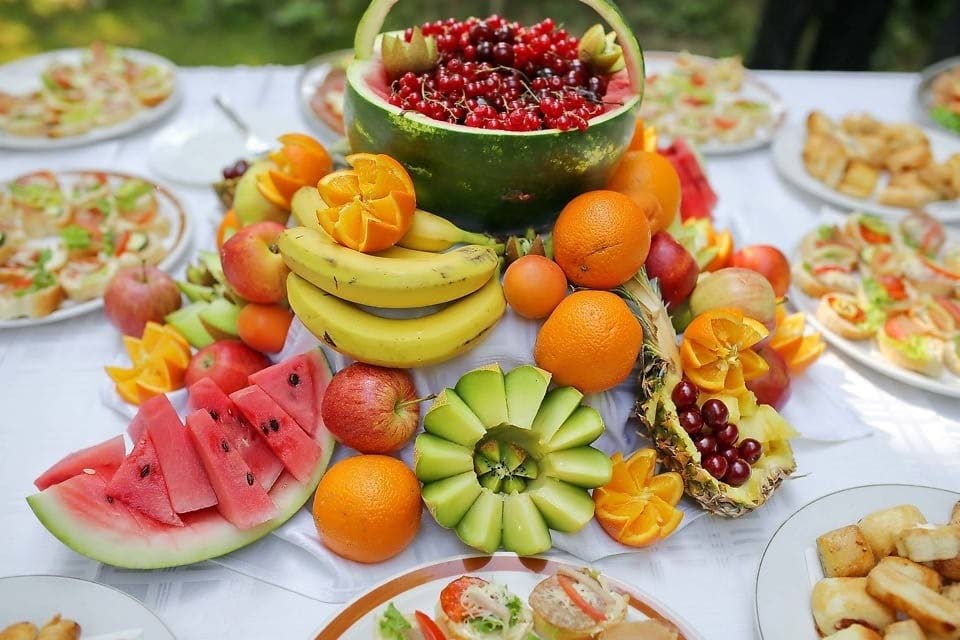Nutrition, fitness tips to take you through Christmas, New Year's — Embracing a healthy feast

BAVINA SOOKDEO
THERE is no doubt that indulgent meals and festive treats will take centre stage today and into the New Year.
Additionally, with Carnival fast approaching you may wonder how one can maintain a balance between savouring holiday delights and staying on track with health goals.
Professional personal trainer, nutrition coach and consultant Abeni Procope offers tips to help you enjoy the season without compromising your well-being.
Procope is a certified TRX (total resistance exercise) instructor, specialising in strength and conditioning as well as weight loss. An IFBB (International Fitness and Bodybuilding Federation) Elite pro-athlete, nutrition has always been a key focus for Procope.
Having studied under Precision Nutrition, an internationally recognised institution, she is currently deepening her knowledge through studies in human anatomy and physiology. She creates personalised nutrition plans designed to help individuals achieve their specific goals.
With over 12 years of experience in her field, the nutrition coach emphasises that holiday eating doesn’t have to be unhealthy. She recommends creating colourful plates filled with vegetables and keeping protein intake high while minimising carbohydrates.

“A colourful plate generally means fewer calories,” she explained, adding that portion control is vital for avoiding overeating. “With large feasts and tempting spreads, it’s easy to overeat, especially when food is readily available throughout the day.”
The festive season often brings unique challenges. Procope highlights some common pitfalls that individuals should bear in mind not only during this season but throughout the year:
Overindulgence in sweets: “The abundance of sugary treats like cookies, cakes, and candies can lead to excessive sugar consumption, which may contribute to weight gain and energy crashes,” she said. “Lack of fruits and vegetables in holiday meals are crucial for vitamins, minerals, fibre and the aiding of food digestion.”
High-calorie, low-nutrient foods: She explained that many festive foods are rich in calories but low in nutrients, such as rich gravies, fried foods, and fatty meats. This can result in overeating without providing essential nutrients.
Irregular mealtimes: “Holiday festivities can lead to skipped meals, overeating and later meal timings,” she said. “This in turn can disrupt regular eating patterns and affect digestion and metabolism.”
Alcohol consumption: For Christmas, New Year’s Day and straight into Carnival, the excessive drinking during social events is quite common. “This can add a significant number of empty calories and may lead to poor food choices due to lowered inhibitions,” Procope said.
Mindless eating: “Holiday stress, emotional eating, and mindless snacking can contribute to overeating, as people may eat out of habit and greed rather than hunger,” she said.
To combat these issues, Procope suggests setting early intentions for what you want to indulge in. “Before heading to holiday gatherings and social events, decide which treats are truly worth indulging in,” she said.
Prioritise your favourites and skip those you don’t love as much. She again encouraged individuals to practice portion control saying, “Take smaller servings of rich desserts or sweets. Use a smaller plate to trick your brain into feeling satisfied with less and stay hydrated. Drink water before meals too as it can help you feel fuller and reduce your consumption.”
Procope also urges everyone to take time to savour meals.
“Enjoy every bite and bask in the flavours, textures, and aromas of your treats. This can make smaller portions feel more satisfying,” she said, adding, that individuals can pair indulgent treats with fresh fruits or nuts for a healthier option. “This adds nutrients and keeps you from overeating sweets.
“Eat regular meals and don’t skip meals to save room for desserts,” she said. “This often leads to overeating later. Stick to a balanced meal plan with lean protein, veggies and whole grains.”

She then commanded, “Get moving! Incorporate physical activity during the festive season. A walk after a meal can help with digestion and balance calorie intake.”
Whether it is Christmas Day or New Year’s Day, fitness should not take a backseat. Procope said staying active doesn’t require drastic measures. “Incorporate movement into festivities with family walks, dance parties, or even hikes and exercise challenges,” she suggested.
“Do mini workouts – squeeze in ten-15 minutes of bodyweight exercises like squats, push-ups, or planks and you can begin your day with a quick yoga session or a brisk walk. Park farther away to get extra steps in or climb the stairs instead of taking the elevator. Take breaks and stretch or do light exercises while wrapping gifts or binging on holiday movies. Set realistic goals and aim for consistency rather than intensity.”
How can one recognise when to stop eating? The nutrition coach suggested the following:
Before eating, ask yourself, “Am I actually hungry, or am I eating because it’s there?”
During eating: Pause midway and assess how full you feel. Stop when you feel comfortably satisfied, not stuffed.
Follow the 80 per cent rule – eat until you’re about 80 per cent full. Your body often catches up after a few minutes, and you’ll feel satisfied without overdoing it.
Take breaks – step away from the table periodically. Chat with friends, sip water, or engage in non-food-related activities to give your body time to register fullness.
For those looking to modify traditional recipes, Procope suggested simple swaps:
Pomegranates: perfect for salads or desserts.
Cranberries: great for sauces or baking.
Sweet potatoes: A good source of vitamin A, fibre, and potassium, ideal for casseroles or side dishes.
Turkey: Lean protein, low in fat, and high in B vitamins which are essential for cell function.
Salmon: packed with omega-3 fatty acids and vitamin D, a festive alternative to meat.
Nuts: walnuts, pecans, and almonds are nutrient-dense and versatile for salads, baking, or simple snacking.
Quinoa: High in protein and fibre, great for stuffing or side dishes.
Wild rice: Rich in antioxidants and a festive base for salads or stuffings.
Cinnamon: Helps regulate blood sugar and adds warmth to desserts and drinks.
Nutmeg and clove: Full of antioxidants and perfect for seasonal baking and beverages.
Dark chocolate: High in antioxidants, great for a healthier dessert option.
Greek yoghurt parfaits: Layered with fruits, nuts, and a drizzle of honey for a festive treat.
Replace sugar with natural sweeteners like honey.
As the year winds down, Procope’s message is one of balance and mindfulness.
“Balance is key – enjoy the flavours, traditions, and laughter of the season, but don’t lose sight of your health. Prioritise movement, savour your meals mindfully, and make time for rest. Let this season be a celebration of connection, gratitude, and care for yourself and others. The holidays are about creating memories, not just indulgences. Stay active, hydrate.”
Looking ahead to 2025, Procope encourages individuals to embrace change and prioritise their well-being.
“Every day brings a fresh opportunity to start anew or make meaningful changes, and 2025 will be no exception. Embrace the inevitability of change by being the driving force behind the transformation you desire for yourself. Above all, prioritise your health – because without it, everything else falls away. Your well-being is the foundation for all that you hope to achieve.”

Comments
"Nutrition, fitness tips to take you through Christmas, New Year’s — Embracing a healthy feast"